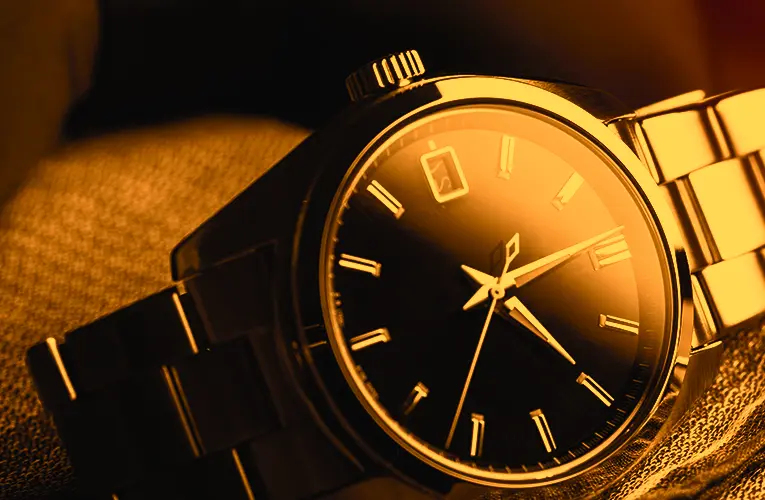The Sustainable Luxury Revolution: Eco-Friendly Practices in Watchmaking
The world of luxury watches, long synonymous with prestige and meticulous craftsmanship, is undergoing a significant transformation. Today’s discerning consumers are increasingly seeking brands that align with their values, and environmental responsibility is paramount. This shift in consumer consciousness has sparked a revolution – the rise of sustainable luxury watchmaking. This comprehensive exploration delves into the environmental impact of traditional watchmaking, examines the innovative solutions being adopted by leading brands, and analyzes the growing consumer demand for eco-friendly timepieces.
A Shadow Cast: The Environmental Footprint of Traditional Watchmaking
The intricate world of watchmaking, while captivating, is not without its environmental consequences. Here’s a closer look at the areas of concern:
-
Resource Extraction: Luxury watches often rely on precious metals like gold, platinum, and titanium. Mining these materials can have a devastating impact on the environment, leading to deforestation, soil erosion, water pollution, and the displacement of local communities. Unethical mining practices not only damage ecosystems but also raise ethical concerns.
-
Energy Consumption: The manufacturing process for watches, particularly the use of complex machinery and specialized techniques like polishing and electroplating, can be energy-intensive. This reliance on fossil fuels contributes to greenhouse gas emissions, accelerating climate change. Finding ways to reduce energy consumption is crucial for a sustainable future.
-
Chemical Usage: Various chemicals are used during the watchmaking process for metal plating, cleaning, and finishing. Improper disposal of these chemicals can contaminate waterways and harm ecosystems. Sustainable practices involve finding eco-friendly alternatives and ensuring responsible chemical disposal.
-
Waste Generation: The production of luxury watches inevitably generates waste, both solid and hazardous. This waste, if not disposed of responsibly, can end up in landfills or pollute the environment. Minimizing waste generation and exploring recycling opportunities are essential steps towards a more sustainable industry.
A Time for Change: Sustainable Practices Leading the Watchmaking Revolution
Luxury watchmakers are recognizing the environmental impact of their craft and are actively seeking solutions. Here are some key areas where sustainable practices are taking root:
-
Ethical Sourcing of Materials: Leading brands are collaborating with responsible mining initiatives and recycled materials suppliers to ensure their metals are sourced ethically and sustainably. This reduces the environmental footprint associated with traditional mining practices and promotes responsible industry practices.
-
Renewable Energy Integration: Watchmakers are exploring ways to integrate renewable energy sources like solar or wind power into their manufacturing processes. This shift towards clean energy reduces reliance on fossil fuels and minimizes greenhouse gas emissions, combating climate change.
-
Sustainable Production Techniques: Innovation in watchmaking is leading to the development of more environmentally friendly production techniques. This includes using water-based cleaning solutions, minimizing chemical usage, and employing energy-efficient machinery. Every step that reduces the environmental impact counts.
-
Waste Reduction and Recycling: Luxury watchmakers are implementing strategies to reduce waste generation throughout the manufacturing process. Additionally, they are exploring ways to recycle and reuse materials, promoting a more circular economy within the industry. By giving new life to existing materials, waste is minimized and resources are conserved.
The Power of Choice: Consumer Demand for Sustainable Luxury
Consumers are playing a pivotal role in driving the sustainable luxury revolution. Here’s how their choices are shaping the watchmaking industry:
-
Shifting Consumer Preferences: Today’s watch enthusiasts are increasingly conscious of the environmental impact of their choices. They are actively seeking out brands that prioritize sustainable practices and are willing to pay a premium for eco-friendly timepieces. This shift in consumer behavior is a powerful motivator for change within the industry.
-
Transparency and Brand Advocacy: Consumers are demanding greater transparency from watch brands regarding their sourcing practices, manufacturing processes, and environmental impact. This empowers them to make informed decisions and support brands that are committed to sustainability. Watch enthusiasts can become advocates for sustainable practices by voicing their preferences and supporting responsible brands.
-
The Rise of Eco-Conscious Watch Brands: A new generation of watch brands is emerging, built from the ground up with sustainability as a core principle. These brands use recycled materials, source ethically, and prioritize eco-friendly production methods. Their success demonstrates the growing market for sustainable luxury watches.
A Sustainable Future for Watchmaking: Challenges and Opportunities
While significant strides are being made, the journey towards sustainable luxury watchmaking is ongoing. Here are some key challenges and opportunities to consider:
-
Balancing Sustainability with Quality: Sustainable practices must not come at the expense of quality. Watchmakers need to find innovative solutions that ensure the longevity and performance of their timepieces while minimizing environmental impact. Striking this balance is crucial for long-term success.
-
Industry-Wide Collaboration: Collaboration between watchmakers, suppliers, and NGOs (Non-Governmental Organizations) is essential to accelerate the development and implementation of sustainable practices. Sharing knowledge and best practices can lead to faster progress towards a greener industry.










